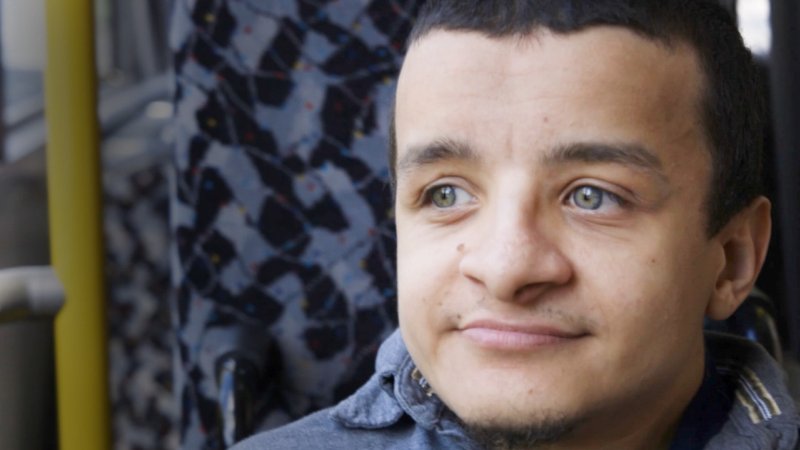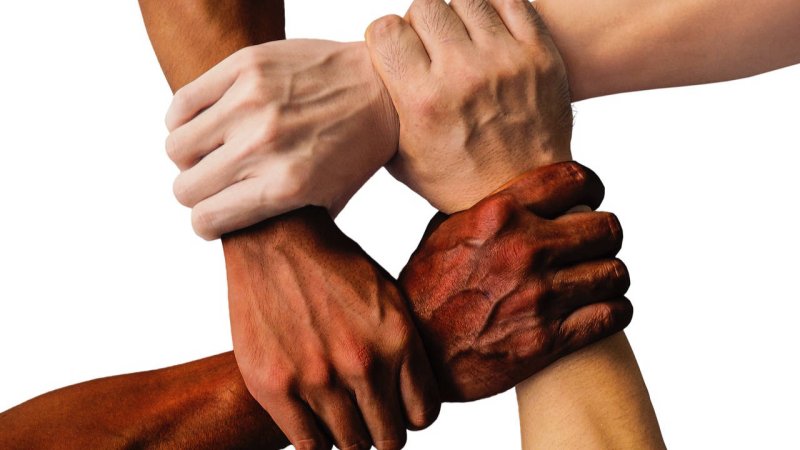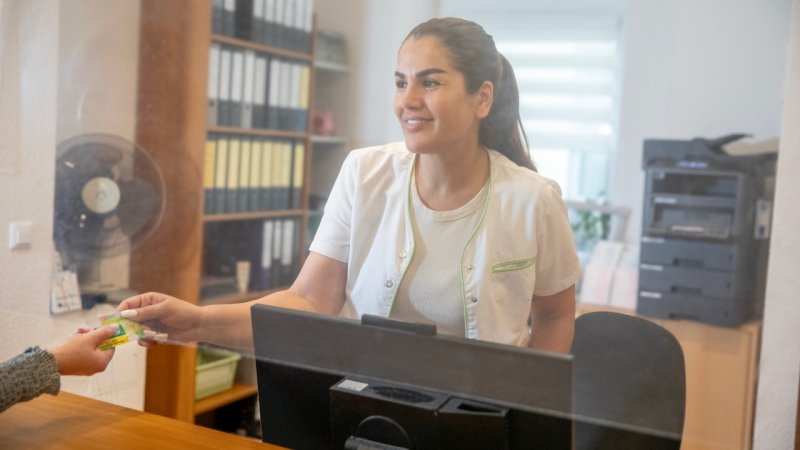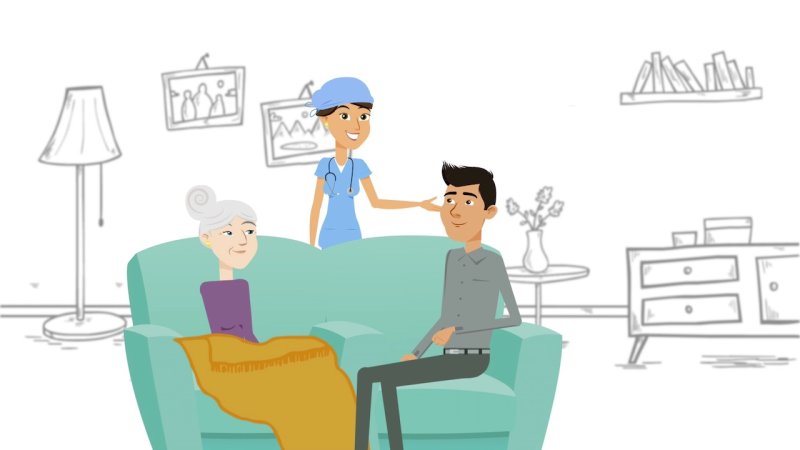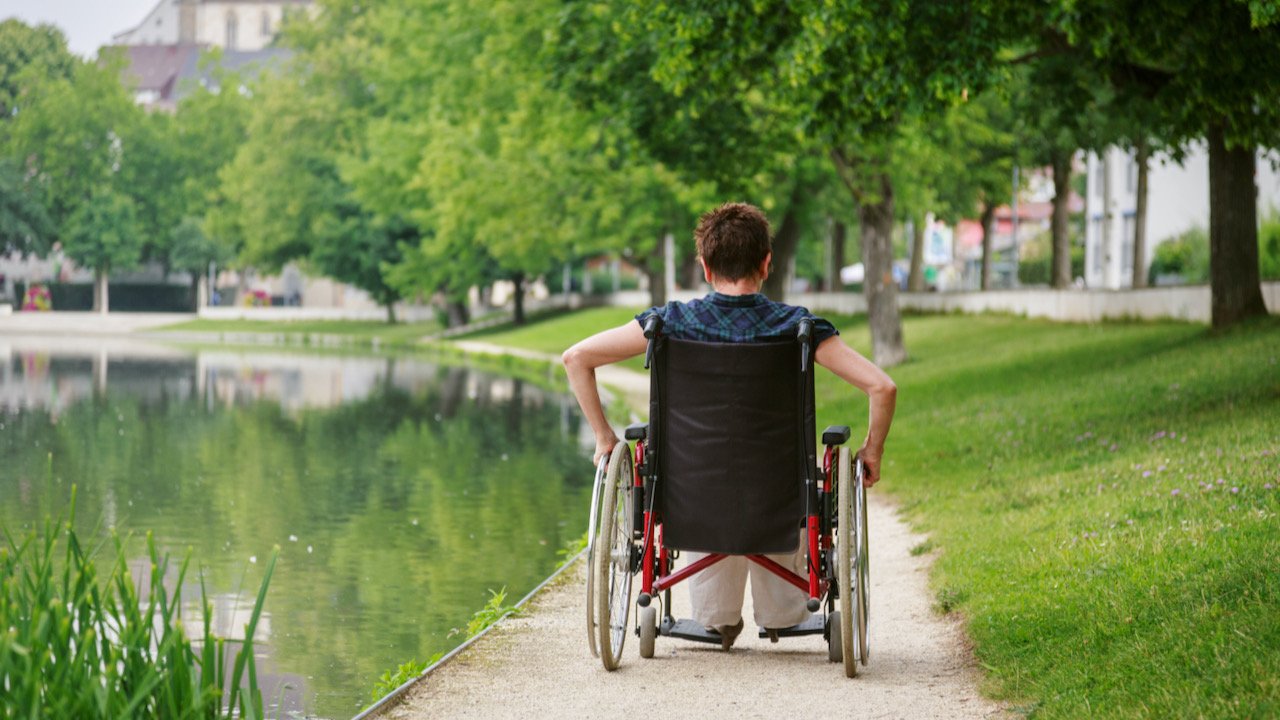
Arriving in Germany and going through prolonged asylum procedures is difficult for all refugees, but asylum seekers with disabilities face even more challenges. Here you can learn more about your rights and opportunities as a refugee with disabilities in Germany.
You can find general information about living with a disability in Germany and available support options in our chapter "Living with disability".
As a result of your disability, you are considered to be a "particularly vulnerable" individual entitled to special rights. When registering as an asylum seeker, inform the BAMF staff about your particular condition. If needed, you have the right to be accommodated in special housing facilities. Furthermore, you are entitled to adequate medical care. You may also receive extra financial aid because of your special needs. Seek help from a social worker in your housing facility or a counselling centre, in case the staff in the initial reception centre cannot provide you with the assistance you need. You can find counselling centres nearby on our Local Information page. Enter the name of the city where you live and search for asylum, residence or legal advice service.
Disability alone is not considered as a sufficient reason to seek asylum, refugee status or subsidiary protection in Germany. However, if you are persecuted because of your disability, then you may be granted asylum or refugee status. If you are treated inhumanely in your home country as a result of your condition, you may be granted subsidiary protection regardless of the severity of your disability– the determining factor for the asylum procedure is that you are persecuted or badly treated because you are disabled. If this applies to you, make sure to seek advice from a counselling centre or lawyer. You can find a lawyer or counselling centres nearby on our Local Information page. Enter the name of the city where you live and search for asylum, residence or legal advice service. For more information, read our chapter Asylum Procedure.
If you need regular medical care and cannot acquire it in your home country, the BAMF may issue a national ban on deportation. With a national deportation ban, you will be granted a residence permit for one year. Such a permit can be extended if your personal situation or the situation in your home country does not improve. You can check out our chapter "Right of Residence" for more information.
If you do not need medical attention, but cannot work because of your disability, and neither the state in your home country nor your family supports you, you may be issued a national ban on deportation. With a national ban on deportation, you will be issued a residence permit for one year. Such a residence permit can be extended if your personal situation or the situation in your home country does not improve.
During the asylum procedure, the BAMF will check whether you are entitled to a national ban on deportation. Keep in mind that you should bring all your German and foreign medical and hospital certificates to the hearing at BAMF. In addition, the BAMF will check the situation in your home country and your prospects there. Make sure to seek advice from a counselling centre or a lawyer in advance. You can find a lawyer or counselling centres nearby on our Local Information page. Enter the name of the city where you live and search for asylum, residence or legal advice service.
For more information, read our chapter Asylum Procedure.
The German state supports people with disabilities to compensate for their disadvantages due to their conditions; this is called "Nachteilsausgleich" or "disadvantage compensation". However, to benefit from state support, you must first register for a "Schwerbehindertenausweis" or "Disability Card." You can find out more about this card in the section "Does the state support people with disabilities?" in our chapter "Living with disability."
You can also apply for such a card during your asylum procedure or despite having "Duldung." However, if your asylum procedure is ongoing, the validity of your disability card depends on the validity of your residence permit. If your residence permit expires, your disability card is no longer valid. However, since 2021, such a rule does not apply to people with a Duldung. That means if you have a "Duldung", your disability card remains valid independent of the period of validity of your Duldung.
In principle, you cannot obtain a permanent residence permit as long as you depend on financial help from the Social Welfare Office.. However, disability can be considered as a reason for exemption: if your disability is the reason why you cannot work, you can still obtain a permanent residence permit. However, you must be able to prove your inability to work with medical certificates.
Find further information regarding asylum procedure in our chapter "Asylum Procedure" and "Right of Residence for Refugees".
As a refugee with disabilities, you can find plenty of useful information on fluechtlingshelfer.info.
Here you can search for a specialised counselling centre nearby.
The Student Union ("Studentenwerk") provides information on themes like financing your studies via their counselling center IBS, which is available under 030/297727-64.
Click here for a step-by-step guide to obtaining a Disability ID Card ("Schwerbehindertenausweis") in Germany.
